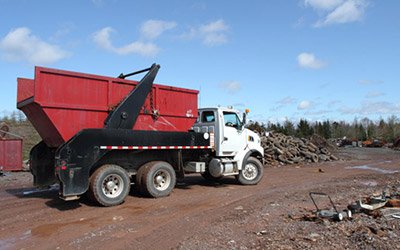Selling an old vehicle that was well-loved but no longer runs to a salvage yard can be a difficult decision. It can also be the best decision, though. In certain situations, sending a vehicle to a salvage yard can benefit several people. If you have an old vehicle that’s not operable anymore, here’s a look at who might benefit from you selling the vehicle to the salvage yard.
You’ll Benefit From the Sale
First, you’ll financially benefit from the sale of the vehicle. Selling a vehicle that’s destined for the salvage yard won’t make you independently wealthy, because salvage vehicles aren’t worth what they once were. You can likely expect to get at least a few hundred dollars, though, and possibly much more.
You should at least be able to get more than the scrap value of the metal in your vehicle, for salvaging a car for parts nets more than melting its metal down for scrap. If the scrap price of steel is $150 per ton and your vehicle weighs two tons, you’ll probably get more than $300 for the car. Depending on the vehicle, you could get a lot more. (Scrap metal prices vary.)
Not only will you benefit from the sale of your car, but the financial payoff will be immediate. In contrast, donating your vehicle to a charity for a tax write-off also can provide a financial benefit. When donating, though, the payoff doesn’t come until you file your taxes, and it may be significantly less than the salvage value because the payoff depends on your tax situation.
Your Family and Neighbors Benefit From Getting Rid of the Vehicle
Second, your family members and neighbors will benefit because they won’t be looking at the vehicle anymore. As much as you might love the vehicle, some of your family members might not have the same appreciation for it. Your neighbors almost certainly don’t. Sending the vehicle to the salvage yard will take it away and out of view.
In some cases, removing a vehicle from your property might even increase the value of your home (and potentially your neighbor’s by extension). Prospective homebuyers are sometimes turned off when they see a rundown vehicle in the driveway or yard. They’re more likely to pay a premium for a home that looks pristine or is next to one that looks pristine.
Everyone Benefits From the Environmental Advantages
Third, everyone benefits from the environmental advantages that salvaging vehicles provides.
Salvaged vehicles are towed to nearby yards, where they’re disassembled for parts. The parts are then sold to mechanics and do-it-yourselfers who often work or live in the area. The total distance that a vehicle and part travel may be only a few miles, staying entirely within the local community between the time a car is salvaged and its part is installed in another car.
Keeping everything local benefits the environment in two ways. Greenhouse gases aren’t created during the production of a second, identical part. Additionally, far fewer gases are released when moving a part around a local area than when shipping it from overseas.
The net effect of salvaging one car might seem small, and salvaging is only one part of the equation. Mechanics and DIYers have to choose to use salvaged parts rather than purchase new ones made overseas. Salvaging vehicles is a necessary component, however, and it’s one step you can take if you have a vehicle that’s suitable for being salvaged.
Your Truck-Owning Friend Benefits From the Towing
Finally, your friend who owns a truck will benefit from the complimentary towing that a salvage yard offers. Most auto-salvaging companies will remove a vehicle for free, so you don’t have to impose on your truck-owning friend and ask them to tow your vehicle away on their weekend.
If you’d like to have a vehicle salvaged, contact us at AAA Trucks and Auto Wreckings.




